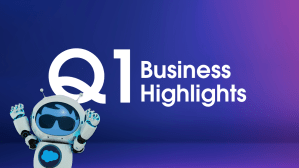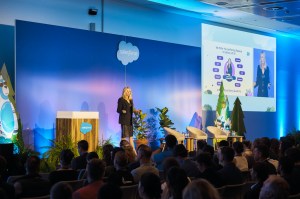Business leaders are grappling with what it means to be on the edge of a revolution, a new era where productivity is not tied to workforce growth; it can be scaled without limits using autonomous AI agents.
Innovation is happening fast, in a short period of time; we’ve moved from predictive to agentic AI. This brings us to a new era of digital labour.
IDC predicts that global AI spending will reach $632 billion by 2028. McKinsey predicts that customer-facing functions such as customer operations, sales, and marketing will deliver 75% of the value from AI investments.
The pressure is on. The most pressing issue for businesses is how to move effectively and at pace to integrate AI into their 2025 operational plans. The race is on to deliver on the promise of AI or risk being left behind.
No wonder many C-suite executives in A/NZ are overwhelmed, working overtime to keep up with the pace of innovation and feeling the weight of expectations from boards, employees and customers.
Ad hoc and DIY AI solutions present risks, especially in regulated sectors where trust is essential. Incomplete digital transformations and unresolved data issues create gaps between AI potential and data readiness.
“Business leaders in Australia and New Zealand can approach new technology cautiously,” said Frank Fillmann, EVP and General Manager, Salesforce A/NZ. “They’re keen to ensure that it’s aligned to the needs of customers, market dynamics, risk appetite, and governance capacity of the organisation, as well as the values and culture that animate the workforce.”
A clear and effective strategy is key, but where to start? To move beyond experimentation to genuine AI-powered business transformation, shifting from the ‘art of the possible’ to the ‘art of the practical’. Frank Fillmann and consultant, best-selling author, and keynote speaker Geoffrey Moore, have posed six pivotal questions A/NZ executives must address:
- What can AI do today?
- What kind of infrastructure is necessary for AI to work?
- What kinds of use cases warrant consideration?
- How can ‘trapped value analysis’ help us prioritise our investments?
- Where is the ROI, and what are the critical metrics?
- How important is it to act fast?
These questions form the basis of the new co-authored white paper, Building an AI-Powered Business in 2025: Six Key Questions for Executives. The white paper aims to guide A/NZ business leaders through the opportunities and challenges of integrating AI.
“In 2024 we all spent most of our time speculating on the possibilities of AI and wondering when they might come to fruition. With Salesforce’s recent release of Agentforce, it is clear that there is a whole host of use cases that can be implemented today,“ said Geoffrey Moore. “The question now is, where should one start and why, and this white paper provides a roadmap for answering it.”
Agentforce, launched in September, is the agentic layer of the Salesforce platform that enables the deployment of autonomous AI agents across business functions. It includes tools for creating and customising agents, along with pre-built agents out of the box. Agentforce extends beyond chatbots and copilots by using advanced reasoning to enable agents to make decisions and take actions.
“Salesforce now has a platform that is extremely differentiated in its capacity to unlock trapped value across the enterprise in a cost-effective way. Customer have the ability to access AI embedded in our platform, it’s just a question of turning it on,” said Fillmann. “The future of enterprise AI isn’t far off; it’s now—and that future is Agentforce.”
Salesforce customers in A/NZ are reaping the rewards from building and deploying Agentforce. For luxury appliance manufacturer Fisher & Paykel, Agentforce automates tasks such as answering FAQs, processing orders, and scheduling appointments, allowing employees to focus on building customer relationships and driving sales.
“Our customers expect efficient and personalised experiences when they engage with our brand—experiences that mirror the luxury of our products. With Agentforce, we will enhance our partnership with Salesforce, deploying autonomous agents that will deliver for our customers when they need us most, while simultaneously driving sales,” said Rudi Khoury, Chief Digital Officer, Fisher & Paykel.
Meanwhile, leading online marketplace for trade services, hipages, is leveraging Agentforce to reduce tradesperson onboarding time from 60 to 10 minutes and is piloting its use for rapid licence checks, retention offers, and package recommendations.
“Agentforce and Data Cloud will help us connect better with our customers and tradies, navigate data storage and access challenges, and ensure our team members no longer need to ‘swivel-chair’ from system to system. We chose Salesforce as our platform to support our product-led approach and make the working life of our staff and tradies as easy as possible,” said Jeremy Burton, Chief Technology Officer, hipages Group.















